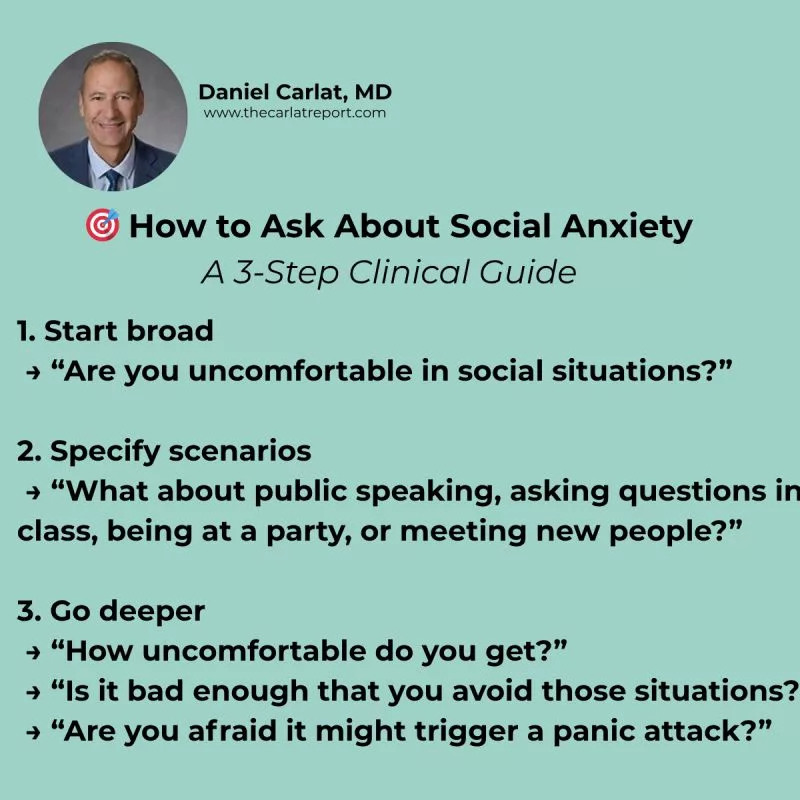Yesterday I wrote about what it feels like to live with social anxiety.
Today I want to talk about how we ask about it.
Because if you don’t ask the right way, you’ll miss it.
And patients won’t tell you. Not because they’re hiding—but because their shame is doing it for them.
Randall, the 17-year-old I wrote about yesterday, didn’t walk in saying, “I have social anxiety.” He told me he hated school.
It took slowing down—and asking the right questions—to uncover what was actually going on.
So how do you ask?Here’s a simple structure I’ve found helpful (drawn from DSM-5 and my book The Psychiatric Interview):
Start with:
→ “Are you uncomfortable in social situations?"
Then specify: → “What about public speaking, asking questions in class, being at a party, or meeting new people?”
Then go deeper: → “How uncomfortable do you get?”
→ “Is it ever bad enough that you avoid those situations entirely?”
→ “Are you afraid it will trigger a panic attack?”
When you get a “yes,” slow down.
Ask how it affects their life—grades, work, friendships, dating.And notice how they answer.
Do they avoid eye contact? Laugh nervously? Downplay?
Tomorrow I’ll show you how I treated Randall.
How do you ask about social anxiety in your practice?
Are there any particularly high-yield questions you’ve found useful?
Join the conversation on LinkedIn with Dr. Carlat
Click the link to check out Part #1.


_-The-Breakthrough-Antipsychotic-That-Could-Change-Everything.webp?t=1729528747)



